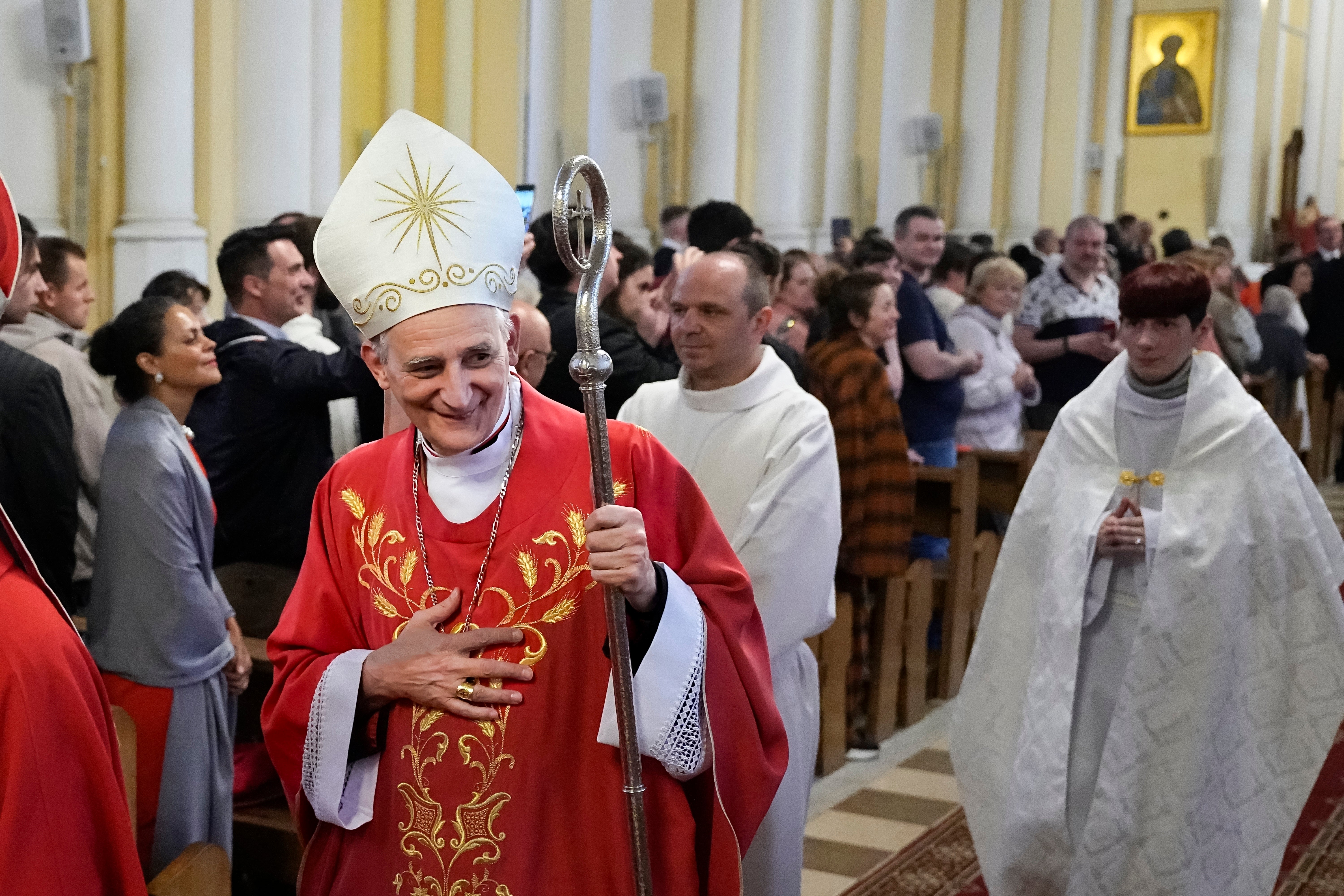Pope's Ukraine peace envoy raises stalled Black Sea grain exports in Beijing talks
Pope Francis’ Ukraine peace envoy has discussed the need to resume the stalled Ukraine grain export deal to feed the world’s hungry during a meeting with a Chinese official in Beijing

Your support helps us to tell the story
From reproductive rights to climate change to Big Tech, The Independent is on the ground when the story is developing. Whether it's investigating the financials of Elon Musk's pro-Trump PAC or producing our latest documentary, 'The A Word', which shines a light on the American women fighting for reproductive rights, we know how important it is to parse out the facts from the messaging.
At such a critical moment in US history, we need reporters on the ground. Your donation allows us to keep sending journalists to speak to both sides of the story.
The Independent is trusted by Americans across the entire political spectrum. And unlike many other quality news outlets, we choose not to lock Americans out of our reporting and analysis with paywalls. We believe quality journalism should be available to everyone, paid for by those who can afford it.
Your support makes all the difference.
Pope Francis’ Ukraine peace envoy discussed the need to resume Ukraine grain exports to feed the world's hungry during a meeting Thursday with a Chinese official while on a mission to Beijing, the Vatican said.
Cardinal Matteo Zuppi met with Li Hui, China’s special representative for Eurasian affairs, at the Chinese foreign ministry. According to a Vatican statement, the meeting focused on the war, “emphasizing the need to join efforts to foster dialogue and find paths leading to peace.”
Food security and Ukraine's stalled grain exports were discussed “with the hope that it will soon be possible to guarantee the export of cereals, especially to the countries most at risk,” the statement said.
Last month, Russia halted a U.N.-brokered agreement to guarantee safe exports of Ukrainian grain through the Black Sea after Russia's invasion impeded shipments at a time of growing world hunger. Russia said it was suspending the deal until its demands to get Russian food and fertilizer to the world are met.
Ukraine’s agricultural exports, like those of Russia, are crucial for world supplies of wheat, barley, sunflower oil and other foods that developing nations rely on. Since Russia's suspension of the deal, Kyiv has sought to reroute transport through the River Danube and road and rail links into Europe, but those routes are more expensive and less efficient than the Black Sea.
Zuppi’s visit to Beijing was the fourth leg of a mission that previously took him to Kyiv, Moscow and Washington. Francis appointed him in May to try to find “paths of peace,” and his initial discussions had focused on coming up with a mechanism to reunite Ukrainian children with their families after they were taken to Russia in the wake of the Kremlin’s invasion.
There was no mention of the reunification issue in the Vatican’s communique Thursday. The mention of grain exports suggested Zuppi’s mission covered other key humanitarian issues linked to the war beyond the reunification dossier.
Asked earlier this week about Zuppi's visit, Mao Ning, a Chinese Foreign Ministry spokesperson, said Beijing was willing to work with all sides to end the conflict.
“On the Ukraine issue, China has always been committed to promoting peace talks, and we are willing to work with all parties to continue to play a constructive role in promoting the de-escalation of the tension,” the spokesperson said.
China and the Vatican haven’t had diplomatic relations since 1951, following the Communists’ rise to power and the expulsion of foreign priests. But the two states have long maintained diplomatic and cultural contacts which, among other things, resulted in a 2018 bilateral accord on the nomination of Catholic bishops in China.